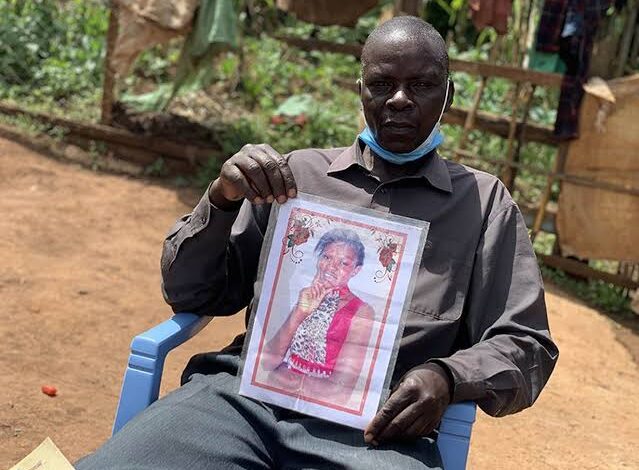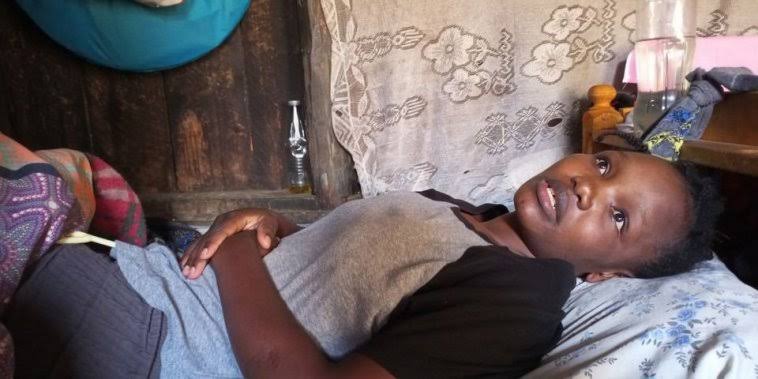
Faith Nyasuguta
Liberia has called on authorities in the Arabian nation off Oman to immediately halt the issuance of visas to Liberians seeking to travel to the country for domestic employment.
The request comes after a group of women already in the country posted graphic images of sexual abuse and other forms of mistreatment they said they were going through in the hands of their so-called masters.
Attending a virtual meeting, Liberia’s Labour Minister Charles Gibson differed with officials of Oman’s Global Affairs department who had described some of the reports by the Liberians as unsubstantiated media claims.
“We are not listening to media reports,” Mr Gibson said.
“We are receiving WhatsApp messages, videos from those girls themselves, showing us graphically how they are being mistreated; some of them were even put into solitary confinement by their hosts.”
He noted that some of the women were being raped and others brutalised which “is very much unacceptable”.
An Omani government official has said the request to halt visa issuance will be considered but insisted the Liberian government should not take everything in the media to be the truth.
Similar heartbreaking stories have been reported across East Africa and the trend is replicated across the African continent.
MODERN DAY SLAVERY?- (CASE STUDY OF KENYA)

In May, Beatrice Waruguru’s body arrived at Kenya’s Jomo Kenyatta International Airport from Saudi Arabia, almost a year after she was reported dead.
Like many other young Kenyans seeking job opportunities in the Middle East, majority of them women, her family says Waruguru left Kenya for Saudi Arabia in February 2021, and died under suspicious circumstances in December that year. The family maintains she was tortured. Waruguru worked as a househelp.
Similarly in 2010, Rose Adhiambo went to Beirut in search of a job at the age of 24, only to return home in a coffin six months later after being subjected to a catalogue of abuse by employers.
Jane Njeri Kamau, 36, died under similarly harrowing circumstances in November 2014, also in Lebanon, where she had been employed as a househelp. Njeri fell ill while in police custody together with her friend, 22-year-old Margaret Nyakeru. Both had been detained after fleeing from their respective employers because of “ill-treatment”.
They had been arrested in May of that year and held for five months. Nyakeru lived to tell the story. The above cases suggest that the ill-treatment and abuse of African workers in the Gulf is not new. The problem does, however, appear to have worsened with the COVID-19 pandemic and the ongoing economic crisis.
While the US remains the largest source of overseas remittances into Kenya, accounting for 63.2 per cent, the Middle East has emerged as an important rival in recent times.
According to Kenyan Wall Street, remittances from Asia in the twelve-month period leading up to February 2022 amounted to US$42.5 million, with Saudi Arabia being the largest source (US$19.2 million), followed by Qatar (US$7.1 million) and the United Arab Emirates (US$4.6 Million).
In July 2021, Labour Cabinet Secretary Simon Chelugui said that since January 2019, the ministry had facilitated the employment of over 87,784 Kenyans in the Middle East, the majority of them working in Saudi Arabia, Qatar, UAE and Bahrain. But these young Kenyans are taking risks because states such as Saudi Arabia have an extremely poor record with regard to the labour rights and working conditions of domestic workers.
CONSTANT REPORTS OF ABUSES IN THE MIDDLE EAST

Reports of Kenyan domestic workers in Saudi Arabia suffering physical and sexual abuse, or dying under controversial circumstances have continued to appear in the press.
Stella Nafula Wekesa left Kenya in August 2021 to work as a househelp on a two-year contract. She died on 10 February 2022. A medical report from Saketa Hospital in Saudi Arabia indicates that Stella succumbed to cardiopulmonary arrest, but her family has said she died after her employer refused to take her to hospital, and alleges that she had suffered mistreatment under previous employers.
Appearing before the Labour and Social Welfare Committee in July 2021, Labour Cabinet Secretary Chelugui told members of parliament that 93 Kenyans have been killed while working in the Middle East in the last three years. Most were in Saudi Arabia, Qatar and the UAE.
The committee also noted that 1,908 distress calls were reported between 2019 and 2021, with 883 being reported in 2019-2020 and 1,025 in 2020-21.
However, these young Kenyans are taking risks because states such as Saudi Arabia have an extremely poor record with regard to the labour rights and working conditions of domestic workers.
Chelugui had been summoned to explain the circumstances that led to the death of Melvin Kang’ereha in Saudi Arabia in 2020. Kang’ereha was also domestic worker, a job she obtained through United Manpower Services, a recruitment agency.

She was reportedly abused and mistreated by her employer and did not return home alive. In its 2021 report, Amnesty International said migrant workers continued to be vulnerable to abuse and exploitation under Saudi Arabia’s sponsorship system, with tens of thousands arbitrarily detained and subsequently deported.
The situation is no better in Qatar, which has faced criticism of its human rights record in the build up to the 2022 World Cup.
“In the decade since Qatar was awarded the right to host the World Cup, exploitation and abuse of these workers has been rampant, with workers exposed to forced labour, unpaid wages and excessive working hours,” reports Amnesty.
Lebanon, which is grappling with a deep economic crisis and growing poverty, is emerging as another problematic destination for migrant domestic workers.
As in the Gulf countries, many of the affected persons appear to be female domestic workers, underlining the gendered nature of the threats faced by Kenyan and other workers in Africa: A report by the International Labour Office finds that when it comes to “women’s paid employment and treatment of migrants, the region is falling behind others”.




